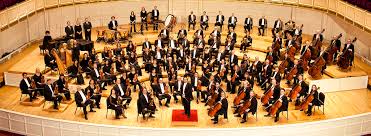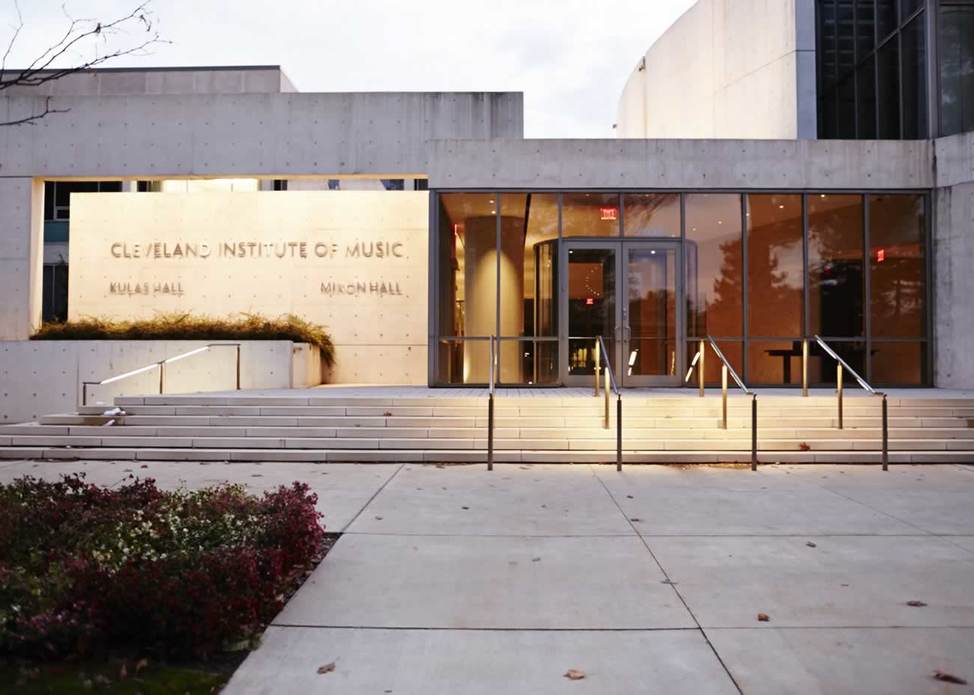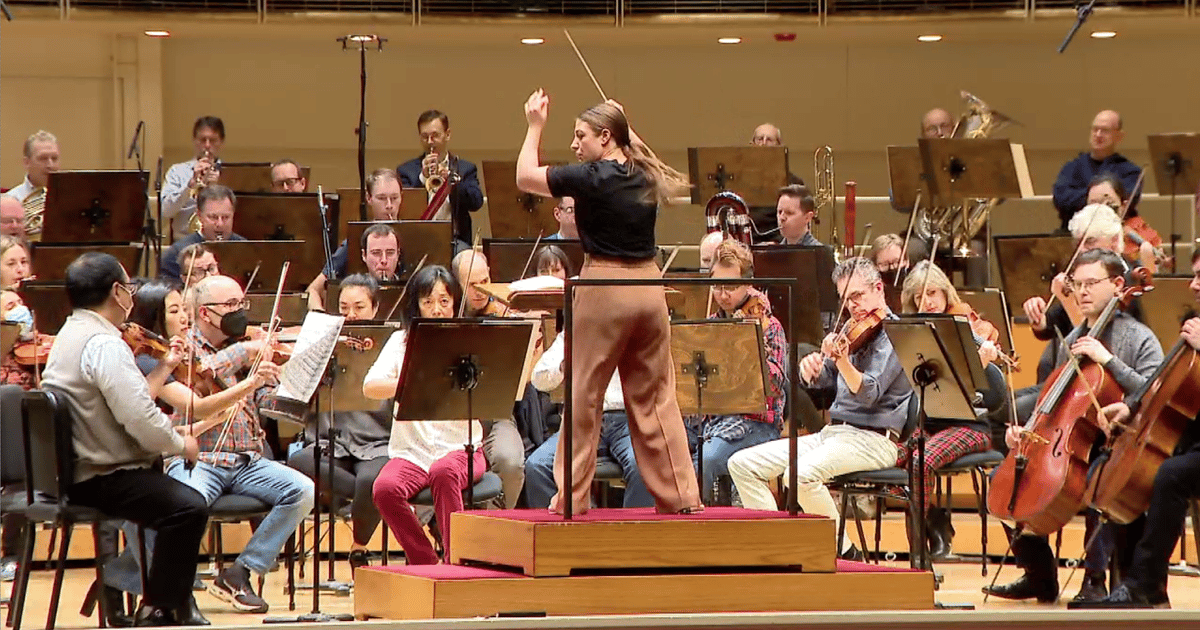Chicago scores $21 million gift
NewsThe Chicago Symphony Orchestra has some very generous friends.
Today, the Negaunee Foundation made a $21 million gift. Just like that.
Since the 1990s, The Negaunee Foundation has provided the Chicago Symphony Orchestra with leadership gifts for education and community programs and overall operating support for CSO concerts and other programs. In 2014, the Foundation made a $15 million gift to endow the CSO’s formerly named Institute for Learning, Access and Training, which was renamed The Negaunee Music Institute at that time. Since then, the Foundation has regularly provided leadership support for the CSOA, including a $10 million gift in 2022 to grow the endowment fund and sponsor CSO concert programs with a wide variety of distinguished artists.
The Negaunee Music Institute connects people to the extraordinary musical resources of the Chicago Symphony Orchestra. Institute programs educate audiences, train young musicians and serve diverse communities, across Chicago and around the world. Signature programs of the Negaunee Music Institute include CSO for Kids Concerts and School Partnerships that annually engage over 25,000 children pre-K through grade 12, especially within Chicago Public Schools.






The CSO has always been “tops” of the list of non-profit cultural organizations in Chicago, along with the Art Institute.
Yes while everyone shouts tax the rich in Chicago. The politicians do not how to handle money. Tax the rich less so they can donate more.
The wealthy are the stewards of culture and higher education in the US!
The wealthy donate to medical wings, school wings, concert halls, orchestra, museums, parks; etc. in the USA because we are taxed less. The more they vilify the wealthy the more will stop donating. The Bring Chicago Home tax in Chicago is one such way to upset the people with money. Unless they are far left then nothing will wake them up. Politicians do a poor job with money; hence, all the issues.
I’m allowing it.
Very nice indeed!
Bravo! One of the world’s greatest orchestras!
Would not disagree with that!!!
The city of Chicago is extraordinarily fortunate to have as a benefactor the Colburn family with their generational dedication to and love of the arts. Here, the Negaunee Foundation is run by Richard W.
His father, Richard D., is legendary in the arts world in Los Angeles, as in the Colburn School of Performing Arts, which sits right down the block from Walt Disney Hall, which will break ground for the Frank Gehry-designed Colburn Center, and who was a lifetime director of the Los Angeles Philharmonic, and co-founder of the Los Angeles Chamber Orchestra, among other things.
San Francisco does not have such benefactors. New York had to import one from LA for its Geffen Hall.
Thank God for people of means , like Richard D., who love the arts!
While the youth education programs are laudable endeavors, it’s just as important to educate the adult concertgoers in the proper attire and etiquettes of classical music traditions, such as when to applaud, how to muffle coughs, and not every performance deserves a standing ovation. (A leaflet in every program would help.) Audience behavior has gotten exponentially worse since the Covid pandemic it’s almost unbearable going to live performances now.
With all due respect, it’s because of people like you that classical music has become mummified and moribund, it’s not a funeral service.
The “traditions” you crave date from a specific historic practice from late 19th century, which for people from the late 19th century must have been sacrilege since it broke away from the classical practice of the 18th century, which for people from the 18th century was sacrilegious since it broke away from the practices of the royal courts of the 17th century….
Get my point? “traditions” have always changed and evolved, otherwise you wouldn’t be sitting in a concert hall today unless you were a noble invited by the monarch, because “classical music” was never meant for commoners
I think you are trying to make progressive response to a traditionalist statement; I saw nothing that was inappropriate in hoping people learned appropriate behavior for a particular environment. No one is advocating excluding anyone for lack of education – more hoping those who wish to become patrons understand that this activity has certain behavioral expectations.
But I could be wrong. Hootin’ and hollerin’ and dancin’ sure seem popular with the young folks today; perhaps Haydn would be even better if we dropped a molly and lost our minds together.
Your comments have some merit, but I for one am glad that some traditions from the 18th-19th centuries — such as the upper classes chattering away in full voice right through performances while sitting in prominent boxes — are moribund.
I go to a concert to *listen* to the *music*, not to hear others in the audience crinkling plastic candy (or cough drop) wrappers, noisily zipping and unzipping purses, fiddling with jangling jewelry, or giving running commentaries (not always about the music) during performances. Cell phones and their visual disturbance — horrible in theatrical performance — is less an issue in most concert music, since we are blessed with eyelids and are free to close them.
Applauding between movements can be appropriate when the end of a movement begs for such a reaction; but doing so for an ending that begs for contemplative silence is another no-no in my book. The public needs to learn (or relearn, or be educated about) when inter-movement applause is appropriate and when it isn’t.
Classical music is not moribund or mummified, nor is it a funeral service. Basic rules of etiquette are not antiquated “traditions”.
Modern day audiences feel the need to ‘express their individuality’ – usually in a T-shirt and ‘distressed’ jeans. No, I take that back – it’s too upmarket.
The newer “traditions” of reckless disruptive behavior in concert halls keep away from concert halls people who prefer to listen to the music played on stage, and not to other sounds made by the audience—except, for 4’33” by John Cage.
What is the reckless behavior happening? I am intrigued.
We don’t all have to behave like children all the time, do we? You can not sit still and quiet for 2 hours? Consider it a zen like experience. Zen practitioners do not get to sit in front of an orchestra. There is also such a thing as class. Not everything has to be a me circus.
I just attended 3 concerts by the VPO at Carnegie Hall. Audience behavior was exemplary in every respect. In my experience, coughing has been greatly diminished post-pandemic.
Oh yes. We must chastise people for applauding at the “wrong” time and for bestowing a standing ovation upon a performance that Mr. Zandonai deems unworthy. The way to rescue an art form that is becoming increasingly marginalized is to make people feel like idiots for showing their appreciation. Soon they’ll be descending upon us in droves for this wonderful experience.
Mr. Raimi, as a performer you’ll understand what I must share about my three experiences when I did not stand for an ovation, or horrors even failed to clap, in each instance, the conductor or soloist, zeroed right in on me and stared right at me, our eyes met.
Very uncomfortable, for both parties. Not that they were mad or that I was being mean, it’s just that YOU STAND OUT when you are not standing and clapping along with the crowd!
Lesson learned: I stand and clap along with everyone else just so I don’t stand out as the lone sourpuss.
You as a performer certainly prefer clappers than non-clappers!
How does it feel to play to a half sold house?
Nobody is ‘chastising’ anybody. People clapping and whooping in the ‘wrong’ places merely tells me they’re not experienced concert-goers. But they’ll come back, again and again.
Oh that’s sad to hear. I have not gone back to the CSO for various reasons since 2019. One being mostly out of the city. What is happening? I know that the CSO is only half sold most nights. They should consider building a new concert hall in Ravinnia perhaps.
Very happy for the CSO. Full stop.
That said, imagine what a medium-sized ROPA orchestra could do with a gift like this, compared to a well-endowed, long-established orchestra. This kind of gift would be revolutionary for even local groups like the Chicago Sinfonietta or the Chicago Philharmonic.
I urge these donors to look beyond the titans. Regional orchestras have important roles to play in audience development and cultural promotion.
100%, Eric. And furthermore, imagine what even 1% or .5% of this sum could do for any number of the community/volunteer orchestras in the Chicago area.
Clearly the great and the good – and at least some of the wealthy – value their orchestra in Chicago. Would that were even 10% the case in London. I wonder why?
That is actually an interesting history, John. I think the CSO became a truly beloved civic institution in the Solti era. The 1960s were very hard on Chicago. It was still mostly famous for Al Capone, it seems. Then the 1968 Democratic Convention, with the hideous graphics of Chicago cops clubbing teenagers, gave the city another black eye around the world.
Even worse for a sports-obsessed city, the sports team were mostly awful. I believe the Bears and Black Hawks each won a single championship early in the decade, and in 1969 the Cubs managed to blow a seemingly certain division championship to the lowly NY Mets in an epic late season collapse. There are any number of Chicagoans of a certain age who are still traumatized by that.
In comes Solti in 1969, leading the orchestra on its phenomenally successful first European tour. Everywhere, they were received with ecstatic standing ovations which didn’t stop until the orchestra left the stage. Time Magazine proclaimed the CSO the world’s best, whatever that means. Finally, the city had something that was respected around the world! The orchestra was given a ticker tape parade down State Street after the tour.
I remember taking a cab to Orchestra Hall shortly after I joined the orchestra in 1984. As he dropped me off, the cabby informed me, “The best orchestra in the world plays there.” And added with great pleasure, “Better than New York.”
Chicago versus London. I suspect the latter has more than one orchestra of note..
Yet they still can’t pay their Civic Orchestra enough to live on at $9,500/season, with pay deductions every chance they get. Where’s all this money going to?
its a student orchestra
They pay them? Back in the 70s we got free sectionals and lessons.
Are you kidding? Why would these players even expect to live on a stipend from a training orchestra that rehearses once a week? It’s even news to me that they started getting paid at all. It was always a huge honor to be part of Chicago Civic Orchestra for the opportunity to work with the best conductors in the world and get coached by CSO players. Thats massive.
Yes! Let’s make sure Muti gets a fair share of that. He has graced us with his brilliance after all.